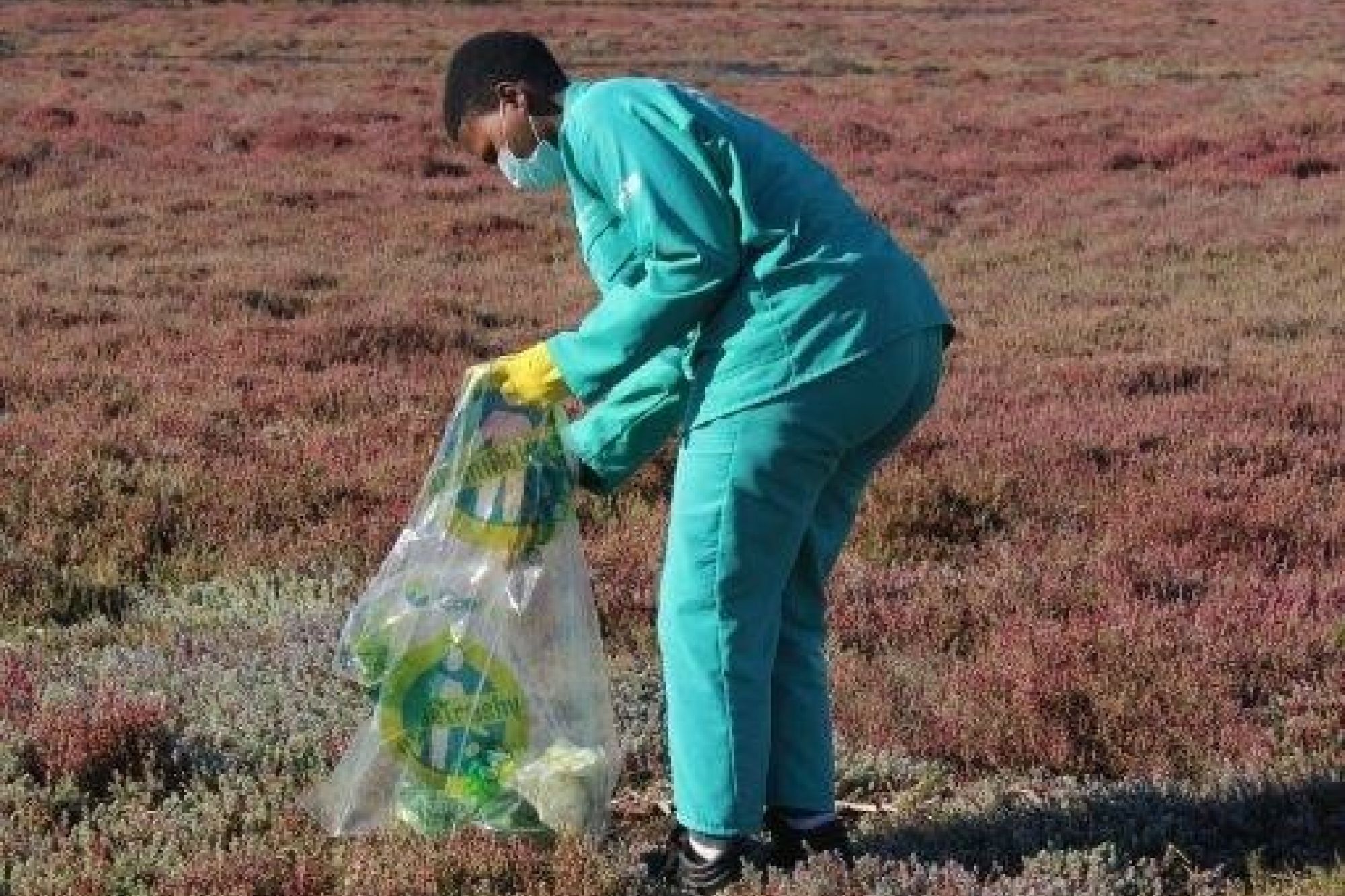
World Environment Day – Velddrif Clean up

On Saturday 5 June, teams from Cape Nature, Department of Fisheries, Forestry and Environment (DFFE), Working for the Coast (WFTC) and members of Velddrif yacht club took part in a combined clean-up event in celebration of World Environment Day, which was focused on ecosystem restoration this year.
The team met at Velddrif Yacht club and had a brief talk given by one of Cape Nature’s marine rangers, giving background on World Environment Day, as well as the negative impacts that litter pollution can have on the ecosystem. The team was then divided into groups to target priority areas along the estuary, focusing on Bokkomlaan, under the Carinus bridge and the railway bridge.
Bags and gloves were provided by Cape Nature and Working for the Coast team. Two members of the yacht club came with their personal boats and assisted in transporting part of the team to the estuary banks that were difficult to reach by foot, some members collected the litter using their canoes, and the Cape Nature vessel was used to collect all the rubbish bags from the areas that were cleaned.
The clean-up was a big success, with a total of 71 bags filled, dropped off at the yacht club and collected by the Berg River Municipality.
Many thanks to all individuals and organizations involved, with special thanks to SuperSpar - Laaiplek for donating the refreshments given to volunteers at the end of the event.




